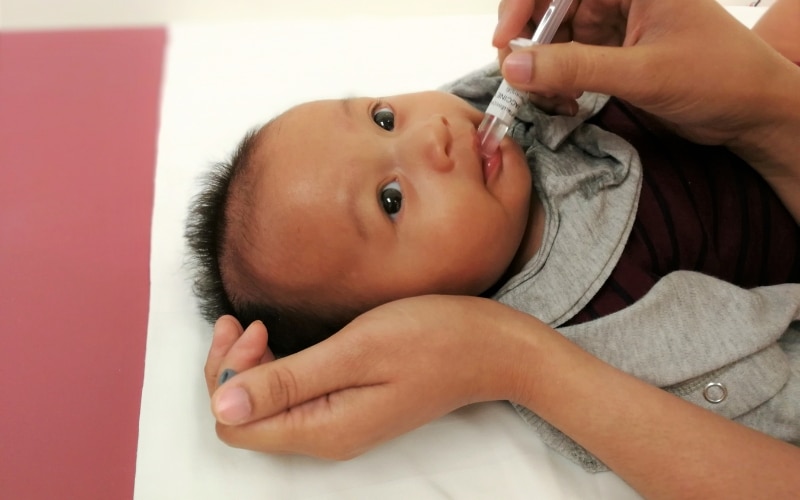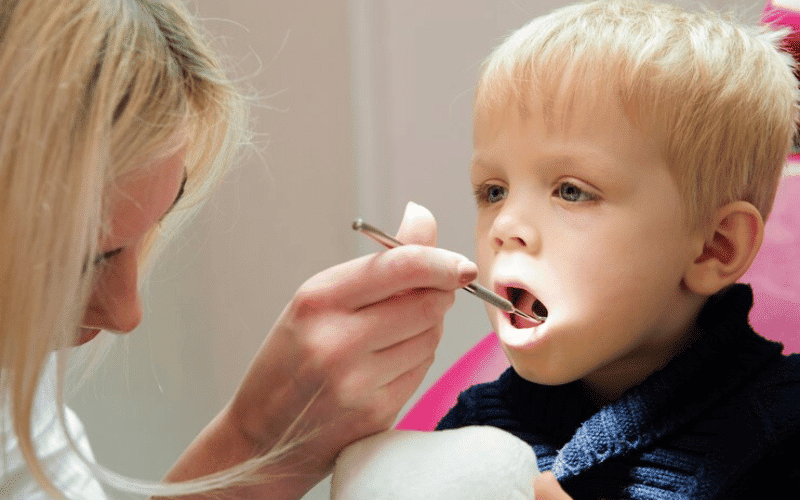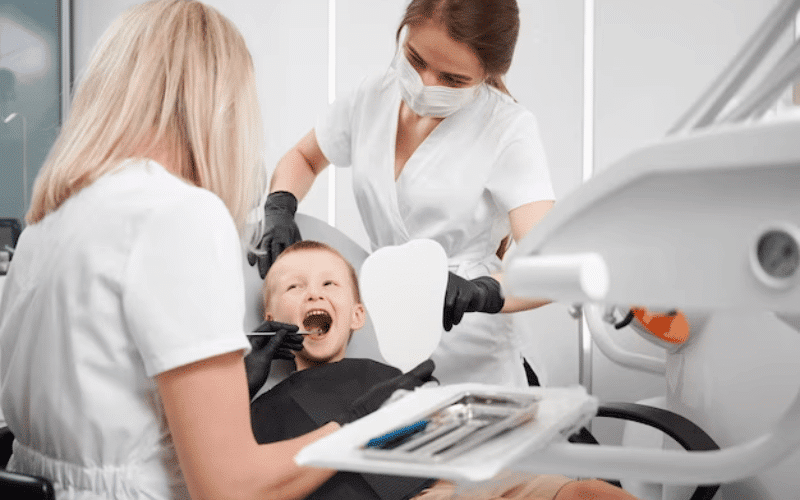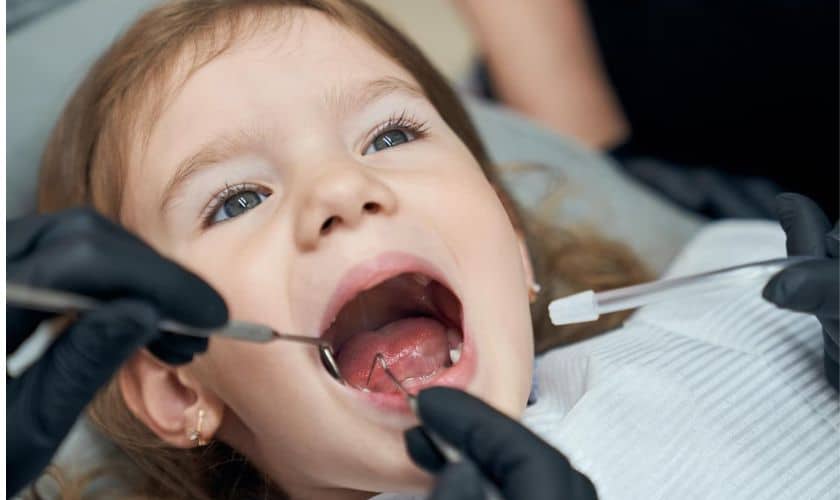The Baby’s First Checkup: A Guide To Infant Oral Exam

Welcome to the incredible world of parenthood! Your baby’s arrival is a momentous occasion, and you’re undoubtedly prioritizing your little one’s health and happiness. As your baby continues to grow, it’s crucial to pay special attention to their oral health. This comprehensive guide will walk you through the essential aspects of an infant oral exam in Allen, TX, equipping you with the knowledge to ensure your kid’s precious smile remains healthy and radiant.
Why Do Infants Need Oral Exams?
Their oral health journey begins from the very moment your baby is born. An infant oral exam is vital for several reasons:
1. Oral Development:
Early examinations enable dentists to closely monitor your baby’s mouth’s development, ensuring their gums and teeth grow correctly. As babies grow rapidly during their first year, these early exams are essential to track their progress.
2. Oral Hygiene Education:
Learning the correct techniques for cleaning your baby’s mouth sets the foundation for a lifetime of good oral hygiene habits. Your baby’s gums and emerging teeth should be kept clean to prevent gum inflammation.
3. Preventive Care:
Early Infant oral exam allow dentists to detect and address potential dental issues before they escalate into more significant problems. For example, if your baby has an early-stage cavity, it can be identified and treated before it worsens.
When Should the First Exam Occur?
The American Dental Association recommends that your baby’s first oral exam occur within six months after their first tooth erupts or by their first birthday, whichever comes first. This guideline ensures that your baby’s oral health is assessed early and that any necessary precautions or treatments can be initiated promptly.
Finding the Right Pediatric Dentist
Selecting the right dentist for your baby is a crucial decision. Look for a pediatric dentist who specializes in caring for infants and children. These professionals understand the unique needs of young patients and create a welcoming, child-friendly environment that puts you and your baby at ease. Here are some factors to consider when choosing a pediatric dentist in Allen:
1. Experience:
Check the dentist’s experience in pediatric dentistry. An experienced dentist is more likely to handle infants effectively.
2. Child-Friendly Atmosphere:
Look for a dental office with a child-friendly atmosphere. This includes colorful waiting areas and friendly staff who can make children feel comfortable.
3. Recommendations:
Ask friends, family, or your pediatrician for recommendations. Word-of-mouth referrals can be very helpful.
4. Location:
Choose a dentist with a convenient location. It is best to pick a pediatric dental practice near your home or child’s school.
5. Emergency Care:
Inquire about the dentist’s policy for handling infant dental emergencies. Knowing that your dentist is prepared for any situation can provide peace of mind.
What to Expect During the Infant Oral Exam?
Your baby’s first dental visit may be a new experience for you and your little one. Here’s what you can expect:
1. Comprehensive Oral Health Assessment
The dentist will thoroughly examine your kid’s mouth, ensuring proper oral development and identifying potential issues. This examination may include assessing the gums’ health, including emerging teeth, and checking for irregularities.
2. Oral Hygiene Guidance
You will receive essential tips and instructions on correctly cleaning your baby’s gums and teeth. Establishing a solid foundation for oral care from an early age is crucial. The dentist will show you how to use a soft, damp cloth or a baby toothbrush with a tiny smear of fluoride toothpaste to gently clean your infant’s gums and teeth.
3. Risk Assessment
The dentist will discuss potential risks such as bottle decay or thumb-sucking and guide effective prevention strategies. For example, they may advise you on preventing bottle decay by limiting sugary drinks in the bottle and avoiding prolonged bottle use at bedtime.
4. Nutrition Advice
You’ll also receive advice on the importance of a balanced diet for your baby’s oral health. Proper nutrition plays a significant role in preventing dental issues, and the dentist may offer guidance on foods and beverages that support oral health.
Preparing for the First Visit
To ensure a smooth and positive experience for both you and your baby, consider the following tips:
1. Strategic Scheduling:
Choose a time for the appointment when your baby is well-rested and alert. Avoid scheduling it during naptime. Babies are generally more cooperative and in better spirits when they are well-rested.
2. Essentials in Tow:
Bring diapers, wipes, a change of clothes, and your baby’s favorite toy to keep them comfortable. Babies can be unpredictable, and these items can help you handle unexpected situations.
3. Comfortable Clothing:
Dress your baby in comfy clothing that allows easy access to their mouth. This makes it easier for the dentist to examine your baby’s mouth and provide guidance on oral care.
4. Remain Calm:
Babies have a remarkable ability to pick up on their parents’ emotions. Staying calm and positive can help make the dental visit less stressful for your baby. Your baby is likelier to remain relaxed if they sense you are at ease.
At-Home Oral Care for Infants
Your baby’s oral health journey doesn’t start and end at the dentist’s office; it begins at home. Here are some crucial steps to help maintain healthy gums and teeth for your infant:
1. Gentle Cleaning:
Use a soft, damp cloth or a baby toothbrush with a tiny smear of fluoride toothpaste to gently clean your baby’s gums and teeth. The purpose of this cleaning is to remove any residue and bacteria from the mouth.
2. Limit Sugar:
Avoid giving your baby sugary drinks and snacks to prevent tooth decay. Even seemingly harmless items like fruit juices can contain sugars and contribute to dental problems.
3. Pacifier Use:
If your baby uses a pacifier, avoid dipping it in sweet substances. Sugary pacifiers can introduce harmful bacteria into the mouth, potentially leading to tooth decay.
4. Sleep-Time Practices:
If your baby tends to fall asleep with a bottle, consider filling it with water instead of milk or juice to prevent potential tooth decay. This practice is particularly important for avoiding bottle rot, a form of tooth decay that can occur when a baby falls asleep with milk or sugary liquids in their mouth.
Regularly Monitoring Your Baby’s Oral Health
After the first visit, maintaining a regular checkup schedule is crucial. Your pediatric dentist will recommend a follow-up plan tailored to your baby’s needs. This may include appointments every six months or as needed based on your baby’s oral health. Regular visits allow the dental practitioner to monitor your baby’s oral development, provide additional guidance, and address any emerging issues promptly.
Your baby’s first oral exam marks a significant step towards a lifetime of healthy smiles. By taking early preventive measures and seeking professional guidance, you ensure your child’s oral health is on the right track. Remember, a visit to the pediatric dentist doesn’t just protect their teeth; it sets the stage for a positive attitude towards oral care that will benefit them for years to come. So, schedule that first infant oral exam in Allen, TX, and embark on this journey confidently, knowing you’re giving your baby the best start for a lifetime of radiant smiles.



